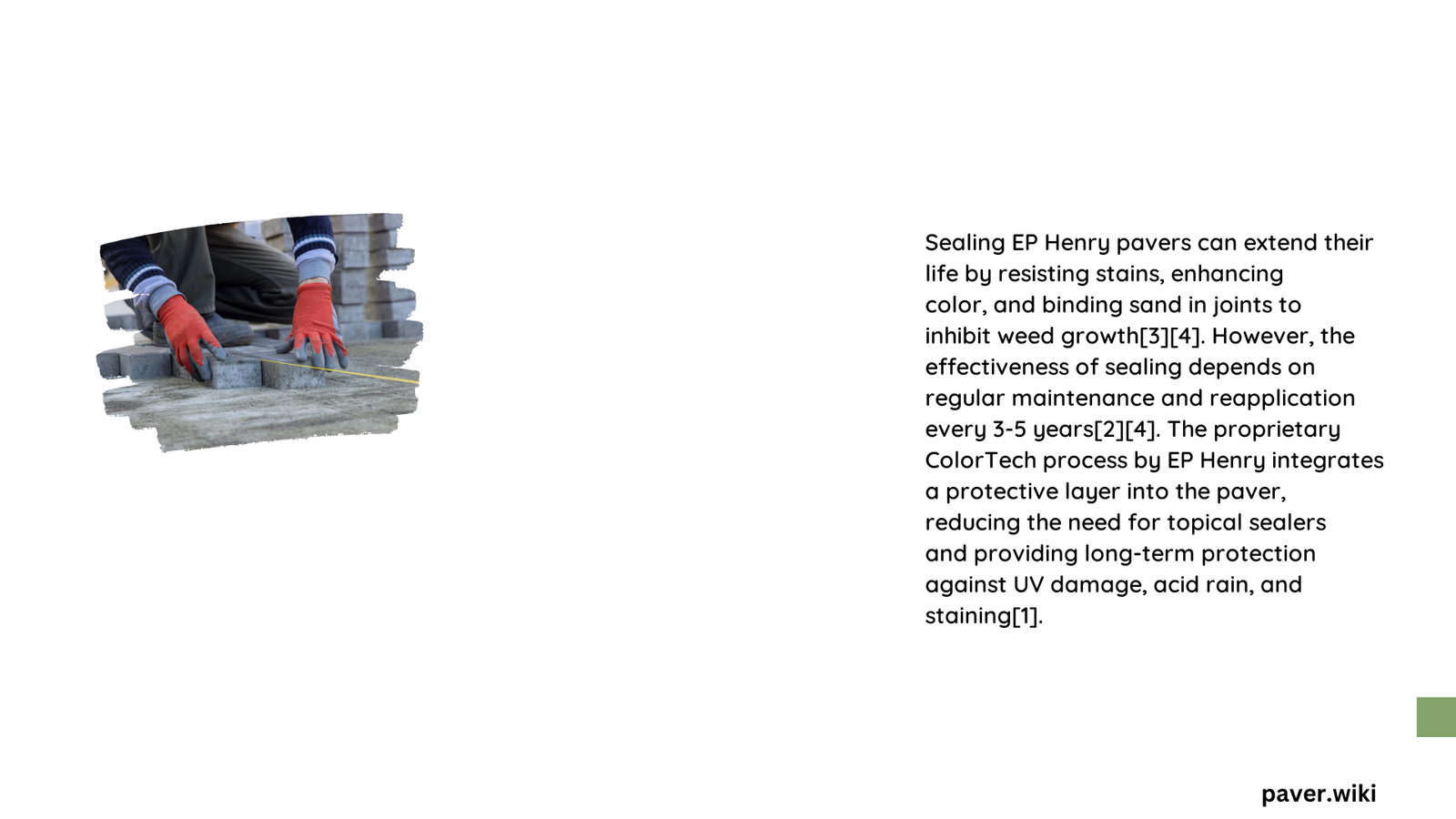EP Henry pavers represent a significant investment in outdoor landscaping, and homeowners often wonder about strategies to maximize their durability. Sealing these pavers offers a comprehensive protective solution that not only preserves their structural integrity but also enhances their visual appeal, potentially extending their functional lifespan by decades through strategic maintenance and environmental protection.
What Makes Paver Sealing Essential?
Sealing EP Henry pavers is more than a cosmetic enhancement—it’s a critical preservation strategy. By creating a protective barrier, sealants shield pavers from multiple environmental and usage-related challenges.
How Does Sealing Protect Paver Surfaces?
- Moisture Barrier
- Prevents water penetration
- Reduces freeze-thaw damage
-
Minimizes potential structural cracking
-
Stain Resistance Mechanisms
- Blocks oil and grease absorption
- Prevents permanent discoloration
- Simplifies future cleaning processes
| Protection Factor | Sealed Pavers | Unsealed Pavers |
|---|---|---|
| UV Resistance | High | Low |
| Stain Protection | Excellent | Poor |
| Color Retention | Superior | Moderate |
What Are the Long-Term Benefits of Sealing?
Sealing EP Henry pavers provides multifaceted advantages that directly contribute to extended surface life:
- Structural Integrity Preservation
- Reduces surface erosion
- Prevents joint sand displacement
-
Minimizes potential cracking
-
Aesthetic Maintenance
- Locks in original color vibrancy
- Prevents fading from sunlight exposure
- Maintains premium landscape appearance
How Often Should Pavers Be Sealed?
Professional recommendations suggest resealing every 3-5 years, depending on:
– Traffic volume
– Environmental exposure
– Initial installation quality
– Specific paver material composition
Technical Insights into Paver Sealing Performance

Research indicates that properly sealed pavers can extend their functional lifespan by 50-100%, transforming a standard 25-year surface into a 50-75 year investment. The molecular bonding created by high-quality sealants provides microscopic protection against degradation.
What Factors Influence Sealing Effectiveness?
Critical considerations include:
– Sealant quality
– Application precision
– Surface preparation
– Climate conditions
– Maintenance frequency
Professional Application Recommendations
- Clean surface thoroughly before sealing
- Ensure complete joint sand stabilization
- Select appropriate sealant for specific paver type
- Apply during moderate temperature conditions
- Allow adequate curing time
Cost-Benefit Analysis
While initial sealing represents an investment, long-term benefits significantly outweigh costs:
– Reduced replacement expenses
– Minimal maintenance requirements
– Preserved property aesthetic value
– Enhanced surface durability
Expert Insights
Landscape professionals consistently recommend sealing as a proactive maintenance strategy. The minimal upfront cost translates into substantial long-term savings and performance enhancement.
Final Considerations
Sealing EP Henry pavers is not merely an optional enhancement but a strategic preservation technique. By implementing this protective measure, homeowners can transform their outdoor surfaces into enduring, beautiful landscapes that withstand time and environmental challenges.
Pro Tip: Always consult manufacturer guidelines and professional installers to ensure optimal sealing results tailored to your specific paver type and environmental conditions.
